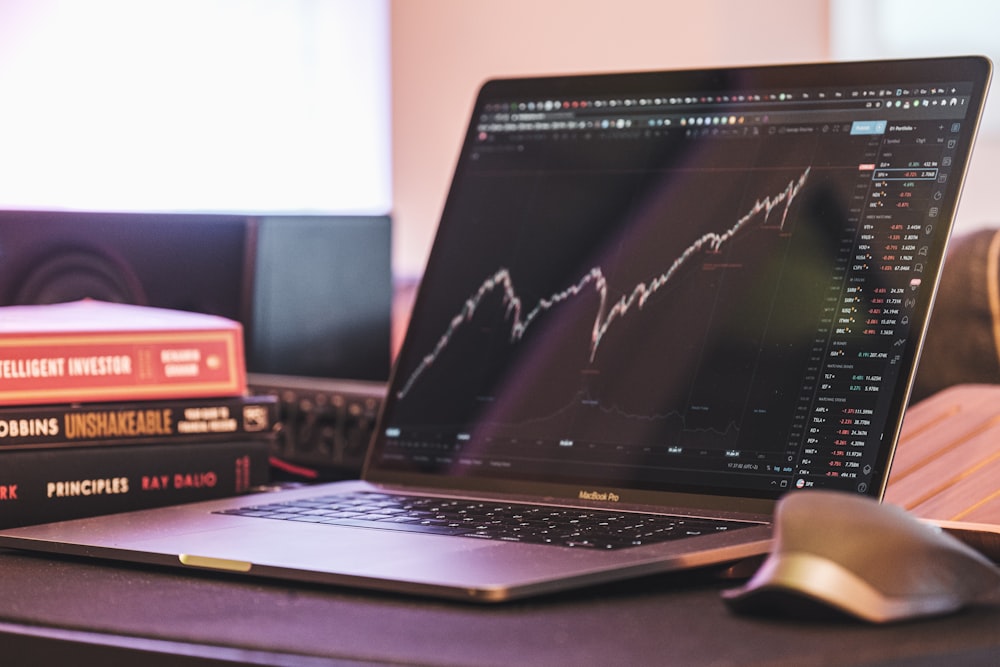The US Is Facing Stagflation. The ECB Intends To Raise Interest Rates This Summer
Photo by Yiorgos Ntrahas on Unsplash
According to former Morgan Stanley Asia chairman Stephen Roche, stagflation in the US is inevitable. He warns that the US is on a dangerous path that leads to higher prices combined with slower economic growth. "The markets are not even close to discounting the full extent of what's going to be required to bring the demand side under control... That underscores the deep hole Jerome Powell is in right now."
Many analysts believe that if fuel and food prices continue to rise, the real estate market and the labor market will be next under attack. The real estate market plays a fairly important role in the US economy, with approximately 65% of the units being owner-occupied. This makes homes an important source of household wealth, and housing is a key source of employment.
The stock market plunge accelerated over the past two weeks after the Federal Reserve said it would raise interest rates relentlessly and even slow the US economy if necessary. At the close of the stock market on Friday, the Dow Jones index (US30) added 0.03% (-2.77% for the week), the S&P 500 index (US500) increased by 0.57% (-2.78% for the week), and the technology index NASDAQ (US100) lost 0.30% (-3.19% for the week). All three indices ended the week with losses. This is the 7th consecutive week of declines, the longest losing streak since the dot-com crash of the late 1990s. This indicates that more and more market participants fear a slowing economy and a move into a recession.
President Biden on Saturday signed a law providing $40 billion in additional US aid to Ukraine. The law was passed by Congress with bipartisan support, reinforcing the US commitment to Ukraine. US officials have warned of a possible protracted conflict.
Major European indices traded higher on Friday. German DAX (DE30) gained 0.72% (-0.03% for the week), French CAC 40 (FR40) added 0.20% (-0.48% for the week), Spanish IBEX 35 (ES35) increased by 0.93% (+2.01% for the week), British FTSE 100 (UK100) added +1.19% (-0.38% for the week). European Central Bank (ECB) President Christine Lagarde said the first interest rate hike in more than a decade could come in July but downplayed the idea of a 0.5% increase amid concerns about economic growth. ECB officials are increasingly alarmed about record inflation and are focusing on problems caused by rising prices and supply chain problems that could undermine a pandemic recovery. With inflation in Europe almost four times more than the 2% target and the US Federal Reserve raising interest rates several times, growing criticism is that the ECB has been too slow to act. German producer price index data showed a higher-than-expected jump, indicating that consumer prices will remain high in the short term.
Russia's Gazprom halted gas exports to Finland on Saturday, the Finnish gas system operator said, due to its refusal to pay in rubles.
Oil prices continue to rise as gasoline markets remain tight amid strong demand ahead of peak driving season in the US and other countries. The peak driving season in the US traditionally begins in late May and ends on Labor Day in September. Oil refineries are in capacity-building mode, but at the moment, demand far exceeds supply, causing prices to rise.
Gold prices added 2% for the week. Gold prices are inversely correlated with the dollar index and US government bond yields. The benchmark 10-year US Treasury bond yield fell to 2.79% from a peak of 3.2%. But that doesn't mean yields will continue to decline because the more aggressive monetary policy, the higher bond yields.
Asian markets closed in the green territory last week. Japan's Nikkei 225 (JP225) gained 1.27% for the week, Hong Kong's Hang Seng (HK50) increased 2.96% for the week, and Australia's S&P/ASX 200 (AU200) added 1.15% for the week. Singapore's annual inflation rate remained at 5.4% (forecast 5.5%), with the core consumer price level rising (excluding food and fuel prices) to 3.3%. Last month, Singapore's central bank tightened monetary policy and stepped up its fight against rising prices, exacerbated by the war in Ukraine and global supply problems.
In the commodities market, futures on natural gas (+5.15%), sugar (+4.23%), silver (+3.64), soybeans (+3.6%), copper (+3.03%), orange juice (+2.96%), gold (+2.04%) and platinum (+1.92%) showed the biggest gains by the end of the week. Lumber futures (-12.86%), gasoline (-3.02%) and cocoa (-2.35%) showed the biggest drop.
Main market quotes:
S&P 500 (F) (US500) 3,901.36 +0.57 (+0.02%)
Dow Jones (US30) 31,261.90 +8.77 (+0.03%)
DAX (DE40) 13,981.91 +99.61 (+0.72%)
FTSE 100 (UK100) 7,389.98 +87.24 (+1.19%)
USD Index 103.03 +0.30 (+0.29%)
Important events for today:
- – Singapore Consumer Price Index (m/m) at 08:00 (GMT+3);
- – Eurozone Germany Ifo Business Climate (m/m) at 11:00 (GMT+3);
- – Eurozone Eurogroup Meetings (Tentative);
- – UK BoE Gov Bailey Speaks at 19:15 (GMT+3).
Disclosure: This article reflects a personal opinion and should not be interpreted as an investment advice, and/or offer, and/or a persistent request for carrying out financial transactions, ...
more



